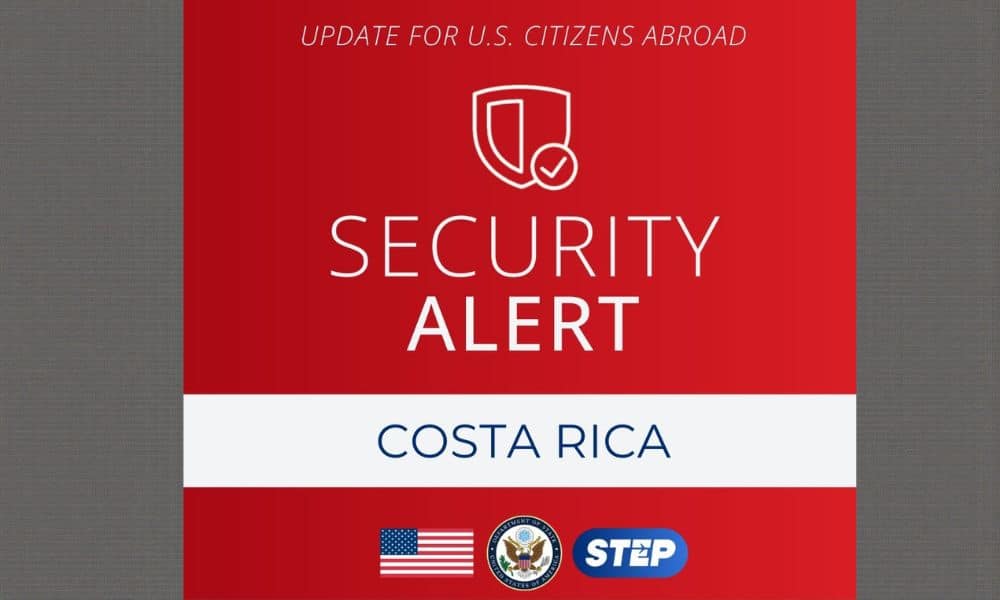The U.S. Embassy here released a security alert, warning its citizens about a spike in crimes targeting foreigners across our country. Officials pointed to recent cases of property theft, financial scams, and robberies that have hit U.S. tourists and residents hard. Criminal groups have zeroed in on foreign-owned homes and businesses, carrying out break-ins, armed holdups, and extortion schemes.
In some instances, gangs have forced people to pull out large amounts of money from ATMs or send bank transfers under threat. Tourists staying in short-term rentals like Airbnbs have faced similar attacks, with reports of intruders entering properties and demanding valuables at gunpoint.
Embassy staff stressed that these incidents reflect a broader pattern of crime affecting expatriates and visitors. They called on Americans to stay sharp and take steps to protect themselves, starting with how they handle reports of trouble.
People who fall victim to any crime should contact Costa Rica’s judicial investigation agency (OIJ) right away. The agency handles probes into serious offenses, and its offices stand ready to assist. When dealing with anyone claiming to represent local authorities, Americans should ask for proper ID. If doubts arise, head straight to the nearest OIJ station instead of engaging further.
For those who live or run businesses in Costa Rica, the alert laid out practical ways to tighten security. Property owners should add cameras and lights that turn on with movement to deter intruders. Keep cash to a minimum on site and lock away important items. The embassy also suggested cutting back on social media posts that might give away details about homes, belongings, or daily routines.
Families and staff need clear rules on safety, such as who enters the property and under what conditions. A full check of potential risks around the site can help spot weak points. Joining local watch groups or talking regularly with police builds another layer of defense.
Tourists got their own set of tips to cut down on risks during stays. Hand over items without a fight if robbers strike, as resistance can lead to worse outcomes. Skip flashy accessories like costly watches or necklaces that draw attention. Stick to groups when moving around, especially after dark, and never leave bags or gadgets alone in cars.
Before heading out, confirm that car doors lock properly—some thieves jam signals from key fobs to keep vehicles open. At banks or cash machines, watch surroundings closely. Banks can help by setting caps on daily pulls, spreading money across accounts, and noting travel details ahead of time for fraud alerts.
Picking the right place to stay matters too. Look into rentals or hotels beforehand, favoring those with solid locks, guards, or positive feedback on safety. Steer clear of spots where past guests flagged break-ins or other issues. Travel coverage that pays for stolen goods offers extra peace of mind.
This alert comes as Costa Rica deals with rising reports of violence and theft, particularly in areas popular with foreigners. While our country draws millions for our beaches and wildlife among many other reasons, these warnings remind visitors to plan with care. U.S. officials noted that quick action and awareness can make a big difference in staying safe.
Americans in need can reach the embassy in San José at +506 2519-2000 or email ACSSanJose@state.gov. For broader travel info, the State Department’s site lists country specifics and enrollment options for emergency updates.
Local authorities have acknowledged the concerns, with OIJ stepping up efforts to track down these groups. Residents and business leaders in expat-heavy zones like Guanacaste and the Central Valley have started sharing tips through community networks to counter the threats.
As the high season approaches, this guidance aims to keep trips enjoyable without overlooking real dangers. U.S. citizens planning visits or already here should review the full alert on the embassy’s website and adjust habits accordingly.






